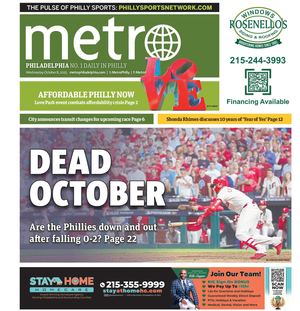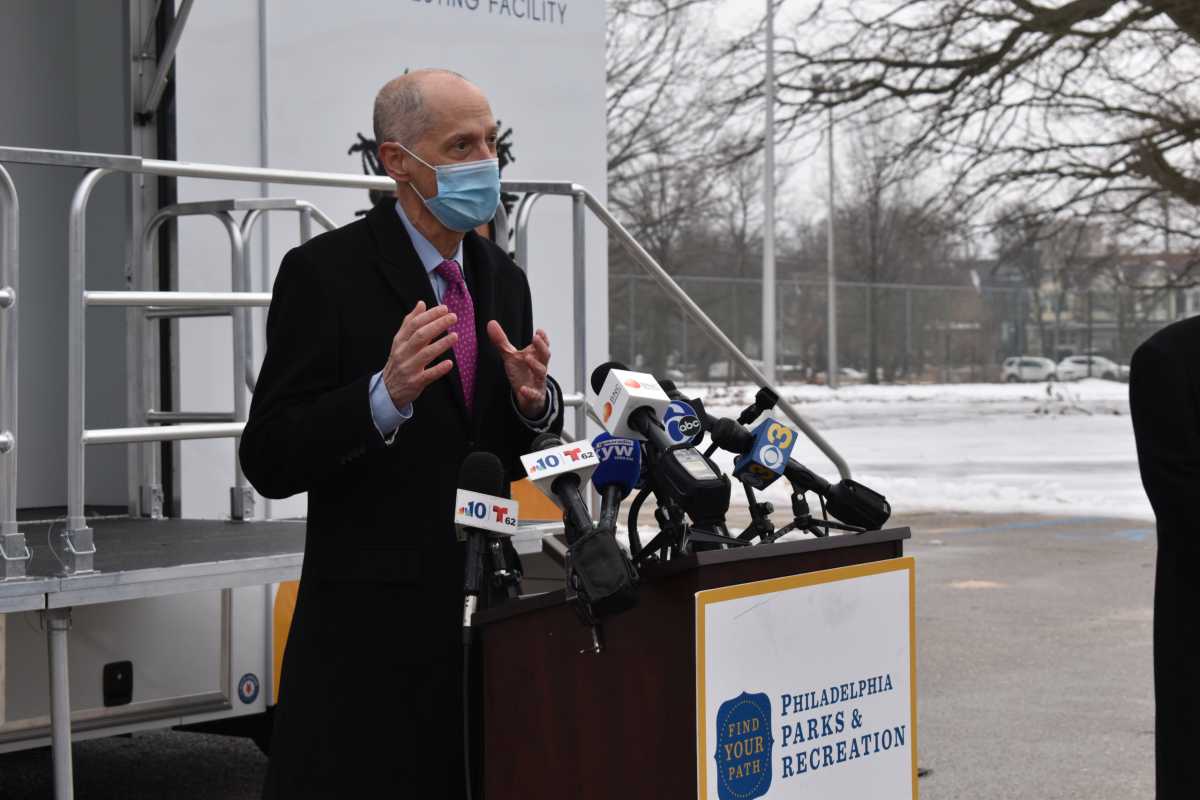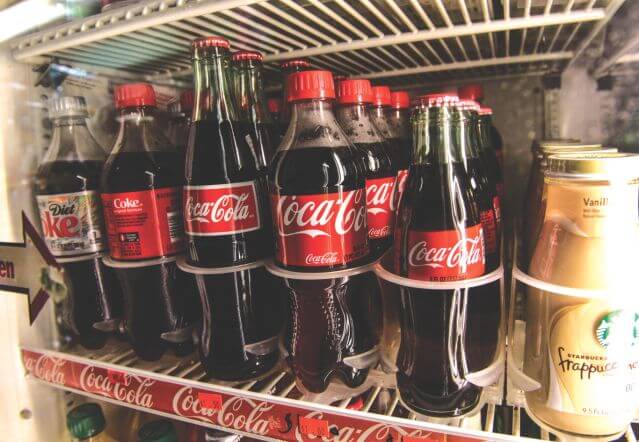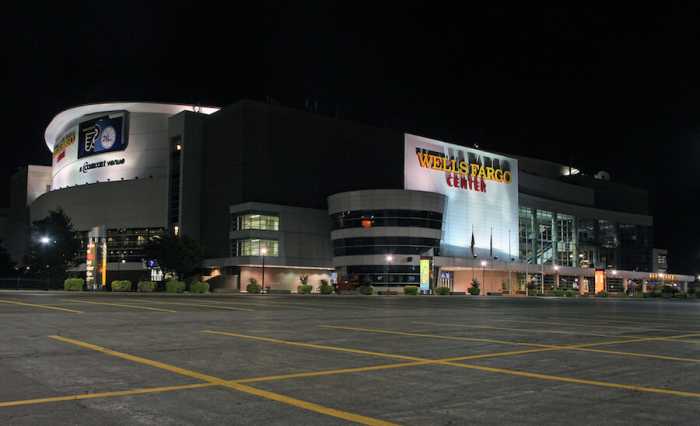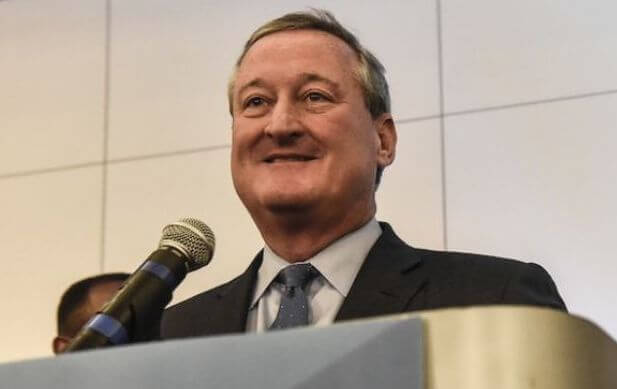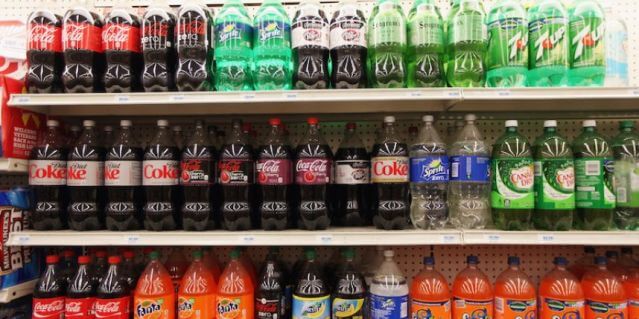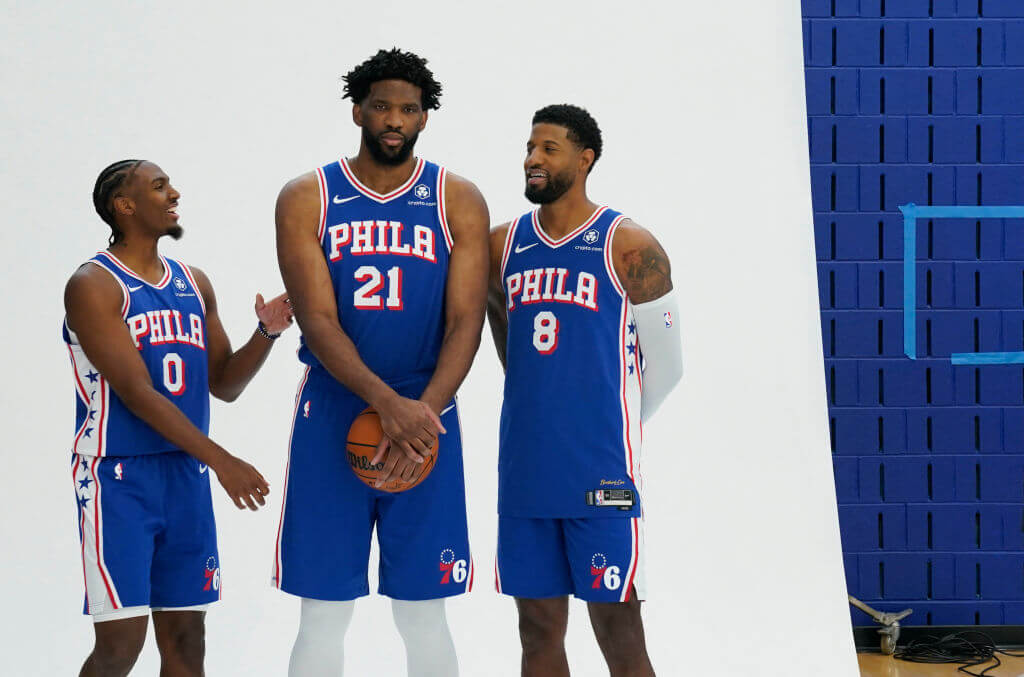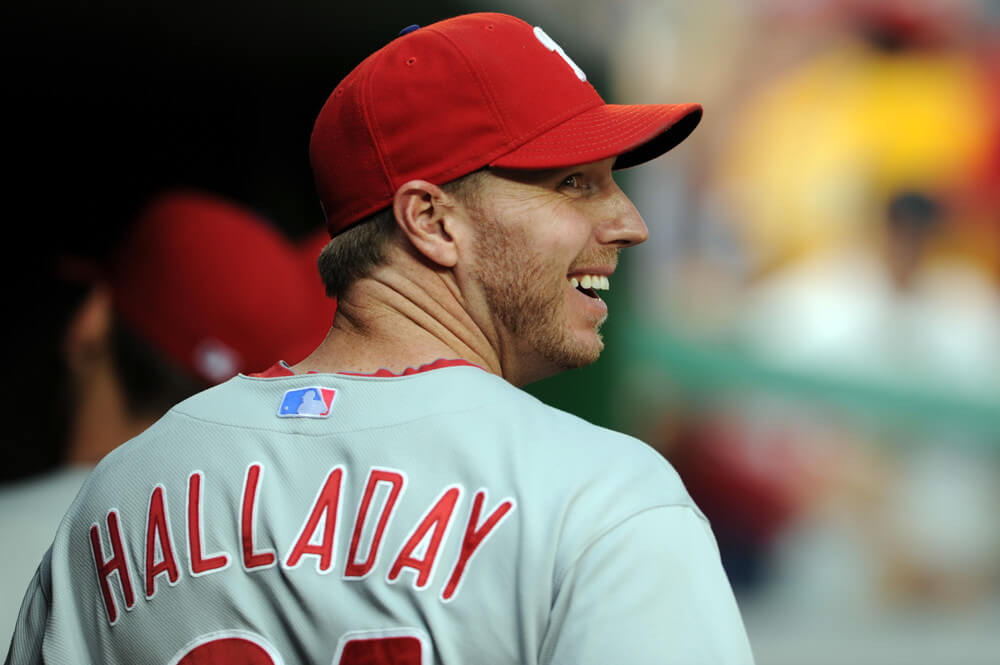Tight restrictions, including a ban on indoor dining, will remain in place through Jan. 15, city leaders said Tuesday, as officials worry about a surge related to holiday gatherings.
Some currently-prohibited activities, such as gyms and museums, may be allowed to resume Jan. 4, when statewide measures expire, if cases do not rise more than expected.
Coronavirus cases have begun to drop in Philadelphia, and the city is set to receive about 37,000 COVID-19 vaccine doses in the second week of what will likely be a months-long vaccination campaign.
Health Commissioner Thomas Farley said he believes the city’s “Safer at Home” restrictions, imposed Nov. 20, blunted recent spikes in infections and hospitalizations.
The protocols were set to end Jan. 1, though were effectively extended to Jan. 4 when Gov. Tom Wolf introduced a similar slate of measures.
Farley said the riskiest activities should remain prohibited until mid-January, which is when he expects cases will flatten out from anticipated increased spread following Christmas and New Year’s Day.
Along with indoor dining, theaters, casinos and indoor sports leagues will remain prohibited through Jan. 15, as well as indoor gatherings and events and most in-person college classes.
Professional athletes can continue competing, as long as their teams work with the health department on a safety plan.
Much attention has been paid to the restaurant industry, and Farley said he understands how difficult the regulations have been, but that indoor eating is “inherently risky.”
“Even a 6 foot distance is not enough if ventilation is not good and people are not wearing masks,” he said.
Museums, outdoor organized sports, gyms, in-person high school classes and outdoor catered events, all of which are currently banned, may still be permitted starting Jan. 4.
Private individuals, meanwhile, are being asked to celebrate Christmas and New Year’s only with people from within their own household.
More than 9,000 people have received a coronavirus vaccine in Philadelphia, and 26,563 people have been inoculated elsewhere in Pennsylvania.
Farley said the city expects to receive 27,600 doses of the Moderna vaccine, which received federal authorization over the weekend, and nearly 10,000 doses of the Pfizer vaccine this week.
It will continue to be shipped to medical centers, and some doses will begin being distributed to non-hospital-based employees, such as home health aides, officials said.
Unlike the Pfizer vaccine, Moderna’s product can be stored in regular freezer units and be kept refrigerated for 30 days before use. The second dose is administered 28 days after the first, while Pfizer’s waiting period is 21 days.
Nursing home residents and employees in Philadelphia will start getting vaccinated next week, Farley said.
For the next four weeks, city officials have been told to expect 10,000 doses of each vaccine, and Farley said Philadelphia should have received about 130,000 by mid-January.
There are more than 100,000 healthcare workers, nursing home residents and long-term care employees in the city, he added.
Federal experts have recommended that the second phase, also called 1B, include people over the age of 75 and essential workers, including police officers, firefighters, teachers, grocery store employees, mail carriers, correctional officers and public transit workers.
An estimated 150,000 people fall into those categories, Farley said, and the next phase, 1C, will likely include all seniors and people with underlying medical conditions.
Farley said Philadelphia’s local vaccine committee will be establishing a list of priority populations for the second and third phase, taking into account the federal recommendations.
City leaders announced 928 confirmed COVID-19 cases Tuesday, a high number Farley attributed to a large batch of test results — nearly 17,000. Philadelphia also registered 89 additional virus-related deaths, raising the city’s pandemic toll to 2,312.
Last week, there was an average of 561 infections a day and an 8.1% positive test rate, lower than the prior week’s 905 daily cases and 11.4%.
“These are still very high case counts, but they’re clearly falling after the spike caused by Thanksgiving,” Farley said.
A total of 6,090 coronavirus patients are hospitalized in Pennsylvania, including 815 in Philadelphia. The state reported 7,962 cases and 231 deaths Tuesday.
In other COVID-19-related news, Mayor Jim Kenney said he was disappointed that Congress included no aid for state and local government in its $900 billion stimulus package.
“I will deliver a new budget to City Council in March, and trust me when I tell you that, without the additional relief, it’s not going to be pretty,” he said Tuesday.
Kenney praised aspects of the relief package but said it could have gone further to extend the eviction moratorium and provide longer-term support for the unemployed.
“So even as we welcome this new relief, we hope that none of our leaders in Washington think that this is sufficient,” he said, adding that he hopes President-Elect Joe Biden’s administration will follow through with another bill.
